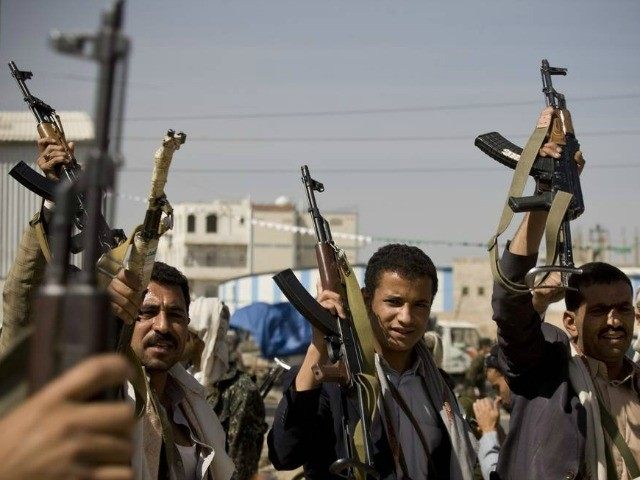Months of peace talks and years of armed clashes have done little to bring Yemen close to a resolution of its civil war, as the Shiite Houthi rebels in charge of its capital, Sanaa, take more ground closer to the bases of the internationally recognized government.
The Associated Press reports Wednesday that officials belonging to the nation’s officially recognized government, run by ousted Sunni President Abd Rabbuh Mansour Hadi, have confirmed that they are losing ground to Houthi fighters in Marib and Shabwa provinces and fear they will lose more ground if the government of Saudi Arabia does not intervene with further air support. The Houthis control the capital, as well as much of northern Yemen, and have managed to remain in control of their territory, thanks to aid from neighboring Shiite powerhouse Iran. Recently, government forces threatened a ground invasion of Sanaa if they feel the Houthi fighters get too close to reclaiming their provisional capital, the port city of Aden.
While repeated attempts at getting the internationally recognized government to negotiate with the Houthi rebels have failed – talks last year ended in a fistfight after a female reporter threw a shoe at a Houthi leader – the United Nations has been attempting to convince both sides to work on tentative negotiations before the holy month of Ramadan.
On Wednesday, both sides agreed to a prisoner swap – 19 Houthi rebels freed in exchange for 16 government militants – the product of the latest round of peace talks in April. Following the swap, the Special UN Envoy to Yemen, Ismail Ould Shaikh Ahmad, called for more liberations of prisoners on both sides. “We urge parties to implement this proposal and adhere to goodwill and national duty to support the path of peace and reunite families in the holy month. There shouldn’t be political grandstanding at the expensive [sic] of the detainees,” he said in a statement.
The Yemen civil war has turned into a proxy war between a number of local actors. With Iran supporting the Houthis and Saudi Arabia supporting President Hadi, the war has increased tensions between both nations. The chaos has allowed the Islamic State and, most notably, al-Qaeda to expand its footprint in the area, as well. In February, reports estimated that al-Qaeda controlled more land in Yemen than the Houthi rebels or the Islamic State, and a report this week found that, while al-Qaeda has lost some of that land in fighting, it still makes millions of dollars daily selling Yemeni oil, having created a structure on the ground similar to that of the Islamic State in war-torn Libya.
The governments of Iran and Saudi Arabia appear nowhere closer to resolving their differences in Yemen. Iranian Deputy Foreign Minister for Arab-African Affairs Hossein Amir-Abdollahian was quoted in a report by Iranian media this week as claiming to be attempting to reach out to high-level Saudi diplomats for talks specific to Yemen, but not being able to schedule talks. The Saudi government, meanwhile, has called on Iran to back away from the war theater in Iraq, where Iran’s Revolutionary Guard Corps have taken a prime role in the operation to liberate Fallujah from the Islamic State.
While Iran claims to be seeking a peaceful resolution to fighting in Yemen, it has banned its citizens from attending the hajj in Mecca, the holiest event in Islam, accusing the government there of not properly guaranteeing the safety of Iranian citizens.
The Houthis have also continued to target not only government bases, but Saudi Arabia itself, shooting missiles across the border.
The United Nations estimates that up to 10,000 Yemeni children have died during the civil war not as a product of fighting, but mostly as a result of “avoidable and preventable diseases” that went untreated because of the inability to travel freely within the country, keeping children out of hospitals that could have saved them.

COMMENTS
Please let us know if you're having issues with commenting.